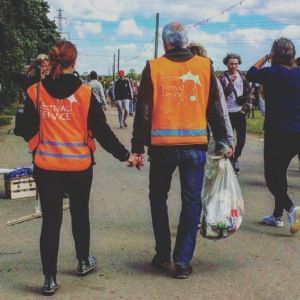News
Roskilde Festival despondent about government’s uncertainty, but not cancelled yet!
This article is more than 4 years old.
The Culture Ministry refused to yesterday give festival organisers any assurances about the summer ahead

When will they be able to return? (Photo Allan Kortbaek / Mutuk5)
Britain’s biggest festival Glastonbury has been cancelled. Likewise Coachella in California and Primavera Sound in Barcelona.
But in Denmark, the Roskilde Festival and a host of others are refusing to give in.
Or at least they were until yesterday, when the culture minister, Joy Mogensen, offered them no optimism that they can go ahead with their plans to hold events this summer.
Vaccinations on schedule, so why not festivals?
“What made us cautiously optimistic was the vaccine plan, which is still estimated to hold,” Signe Lopdrup, the head of Roskilde Festival, told Soundvenue.
“There has also been a good push in some of the digital and supportive solutions that are needed if we are to be able to make a festival this summer: for example the corona pass.”
With the whole country on schedule to be vaccinated by June 27, various festivals have been envisaging festivals held under the tightest corona security, with corona passports necessary to enter.
But at a consultation yesterday, Mogensen said she was unable to offer definite answers on the roadmap moving forward: “I am fully aware that this answer at present does not provide complete clarity about the big events, and they are in an extraordinarily difficult situation.”
Could lose a quarter of their acts at this rate
Roskilde Festival has not given up. “We are certainly not cancelled yet,” Lopdrup said defiantly. But she anticipates “20-25 percent” of their acts cancelling should the situation not change soon.
Samsø Festival chair Thomas Jacobsen likewise told TV2 that “it is not easy to make cautious agreements with suppliers that we may or may not need to use”.
And Smukfest spokesperson Søren Eskildse called for the government to provide “a phased plan with certain criteria that must be met in order for us to hold a festival”.
“For example, a dialogue about the possibilities of the quick test and what the corona pass will be able to do to get as safe and sound an event on its feet as possible,” he said.










































